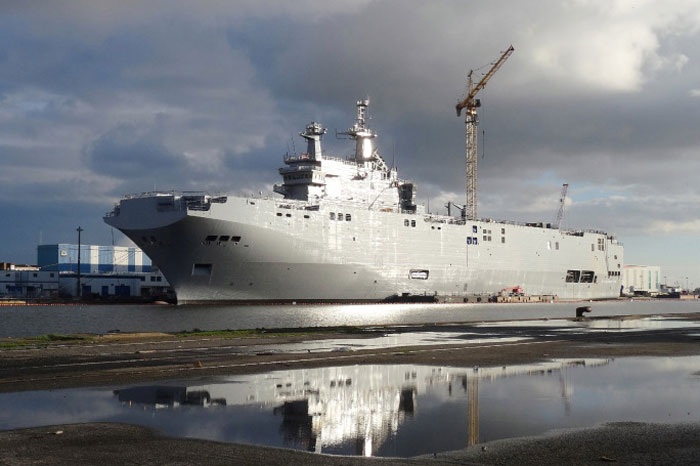
After the failures in Syria, in Egypt, between the Israelis and Palestinians, Obama’s Russian report remains circumspect.
The major drawback of the Wilsonian philosophy, to which Barack Obama more or less claims to adhere with multiple exceptions, is that it must be a shared minimum to serve as a principle of action. There is clear evidence that at school, Vladimir Putin did not learn the teachings of Kant – according to whom democracies do not make war – nor Hegel – for whom history was a driving force behind relentless logic.
This is the reason why the American president’s chosen method to discredit his Russian counterpart seems ridiculous, even though it is claimed to be dramatic and solemn. To assert that “Russia is on the wrong side of history” and that Moscow’s attitude won’t be without “consequences,” as Obama did following the Russian offensive in Crimea, comes back to following the footsteps of Woodrow Wilson (president from 1913 to 1921), who proclaimed that “there must be, not a balance of power, but a community of power; not organized rivalries, but an organized common peace,” in an address to the Senate on Jan. 22, 1917.
Let Wilson, who had a lot of merit, rest in peace. However, note that, at the very time that this apostle of idealism in international relations circulated his ideas in the west, the Russian Revolution of 1917 completely speaks otherwise, and claims to adhere to strict atheism, rejection of the market economy, armed combat, uprising of people who are against oppressive powers, and guided democracy.
Have we really advanced in a century? That’s the question that the Crimean affair seriously poses when we measure the extent to which the Russian objectives remain incomprehensible to westerners, and how much it seems to indicate that the principles born out of the period of Enlightenment cannot be imposed from outside the Russian world.
One Word Too Many
From this historical perspective, even the idea of “consequences,” raised by Obama, is again one word too many, an unnecessary phrase that will only be followed by minor effects. On the one hand, the Ukrainian crisis adds to a long list of conflicts between Washington and Moscow – particularly the Magnitsky Act (the law passed in the United States to punish the Russians who were responsible for violating human rights) and the Snowden affair – which highlight the point to which the American-Russian “reset,” proposed by Barack Obama at the start of his first mandate, was a stillborn concept.
Moreover, having relegated Europe to the rank of subcontinent, involved in relationships facing the past, Obama is now proven wrong. The latter is ensnared in his own view of the world: Asia is of no help to him against Putin – quite the contrary. Nevertheless, he finds himself magnetized in Europe by the black star of powerlessness, in conditions little different to those met by his predecessor in Georgia. Everything being said, after the failures in Syria, in Egypt, between the Israelis and Palestinians, Obama’s Russian report frankly remains circumspect.
Europe, Incapable of Adopting Sanctions Measures
On the other hand, the weakness of Europeans, which the Kremlin views to be a portrayal of American subsidence, allows Putin to play to the divergence of interests between the United States and Europe. It is necessary to recall that the Russian oligarchs shamelessly spend their holidays in France, invest their money in London, and do their shopping in Berlin, without ever worrying about anything.
Requested repeatedly, Europe has appeared to be incapable of adopting the sanctions measures on the model of the American Magnitsky Act. Putin has definitely noted this inability. If a final, overwhelming sign was necessary, here is one that specifically relates to France: Last week, the Vladivostok, the first landing helicopter dock sold to Russia by France, initiated its inaugural departure to sea at Saint-Nazaire. The second ship could soon undergo the testing phase. It bears the name Sevastopol …

Leave a Reply
You must be logged in to post a comment.